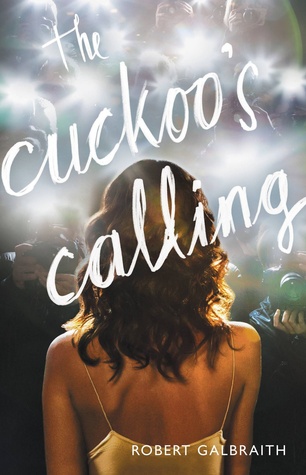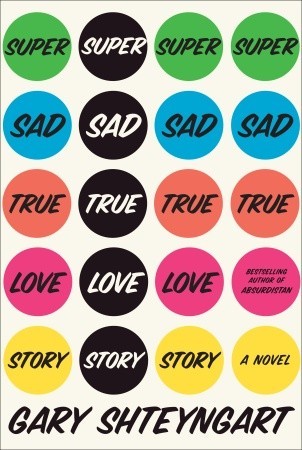The bird that would soar above the level plain of tradition and prejudice must have strong wings.
Just yesterday, there was an article in the paper with the unfortunate headline: Why the first mission to Mars should only have female astronauts. I say "unfortunate" because that clickbaiting headline didn't really represent the body of the article, which lists many reasons for why women make good astronauts, with a particular emphasis on the fact that their smaller body size and caloric intake would necessitate bringing less payload (thereby saving money) on a long mission to the Red Planet. The journalist concludes that a diverse group -- one with women and men, preferably of different backgrounds -- would be ideal for the mission. But that headline, with the "only females" bait, brought out the worst in the online community, with the top comment being:
Interesting, although somewhat different than my experience. I have found over the years that if you have too many women working together you get drama and conflict. Why? I have no idea. Seems that many women just don't play well with others.
Perhaps retired jockeys may the solution.
Just sayin'.
And the top response to him was: The definition of a misogynist is a man who hates women as much as women hate each other. Yeah, I'm sure that rapists and patriarchal oppressors (and online commentators) are simply mimicking female cattiness. And, of course, where NASA is concerned, retired jockeys are obviously more suitable for space exploration than women engineers, geologists, and exobiologists. Just sayin'.
All this to say that, although we have, of course, come a long way, baby, women are still not universally seen as the absolute equal of men; not even here in progressive North America, and much of our advances can be laid at the feet of the early feminists (and as for that dreaded f-word, another popular comment on the Mars article is: I think no one but the most prominent, powerful feminists in North America should be on this flight. In fact, in order to ensure all prominent feminists get a fair shot at the glory, I think as many of them as physically will fit in the capsule should be sent on their way. They would be heroes, especially if they never came back to Earth, for all sorts of reasons.) Har, har. Fortunately, we can only imagine how much more marginalised life was for North American women over a hundred years ago, and books like The Awakening serve as reminders and demonstrate the courage that their feminist authors possessed.
Edna Pontellier seems to have it all: a rich and kind husband; two healthy little boys; and a favoured position in society with many interesting friends, parties, and holidays. With a nanny and other servants, her time is mostly her own, and Edna explores her artistic side, painting and listening to music that moves her. And yet…when she spends one summer vacation in the company of an exciting young man, Edna realises that she has never once made a decision that was true to her own self, and she slowly awakens:
•Mrs. Pontellier was beginning to realize her position in the universe as a human being, and to recongize her relations as an individual to the world within and about her. This may seem like a ponderous weight of wisdom to descend upon the soul of a young woman of twenty-eight -- perhaps more wisdom than the Holy Ghost is usually pleased to vouchsafe to any woman.
• I would give up the unessential; I would give my money, I would give my life for my children; but I wouldn't give myself. I can't make it more clear; it's only something which I am beginning to comprehend, which is revealing itself to me.
• She was becoming herself and daily casting aside that fictitious self which we assume like a garment with which to appear before the world.
(This paragraph has the spoilers.) Refusing to be caged any longer, over the next several months, Edna sheds, one-by-one, her social duties, her home, her husband, the very notion of marriage, and eventually, in a move that many reviewers see as an unforgiveable abandonment of her children, Edna swims out to sea and allows it to swallow her whole. So far as oppression goes, Edna's life doesn't look half bad -- she did choose her own husband (even if it wasn't a love match on her end), all of her physiological and social needs are being met (without the need for hard labour or drudgery on her part), she has avenues for self-expression, and many freedoms. Even so, her husband does think of Edna as his property; her social life as an extension of his business concerns. The pressure to be the ideal mother-woman becomes too much and Edna realises that a gilt cage is still a cage and begins to live for herself alone. In the tradition of Anna Karenina and Madame Bovary, that kind of a selfish decision can only end poorly.
The voice of the sea is seductive; never ceasing, whispering, clamoring, murmuring, inviting the soul to wander for a spell in abysses of solitude… The foamy wavelets curled up to her white feet, and coiled like serpents about her ankles. She walked out. The water was chill, but she walked on. The water was deep, but she lifted her white body and reached out with a long, sweeping stroke. The touch of the sea is sensuous, enfolding the body in its soft, close embrace.
In a way, Edna Pontellier's life anticipates our modern malaise; where vague feelings of dissatisfaction are enough to torpedo a marriage; where frantic whispers of "Oh, think of the children!" aren't enough to stop families from breaking apart. We may take that in stride today, but it must have been a revolutionary idea when The Awakening was published in 1899; certainly the author, Kate Chopin, felt a backlash with poor sales and harsh reviews. I'm always of two minds when I hear of someone walking out on a family to pursue self-fulfillment -- it's certainly selfish and the breaking of a vow, but with only this one life to live, who am I to say someone must remain in a cage? Does selfish need to be a bad word? Is it a commendable accomplishment of feminism that today men and women alike can refuse to be yoked by societal expectations? I don't know if I can 100% understand Edna's motivations and actions in this book, but I do applaud Kate Chopin's courage in laying it all out; it is on shoulders such as hers from which women may yet reach for Mars.

This review may make me seem like a strident
feminist, or least someone who can be riled by internet trolls, but neither is
really the case (and as for trolls -- I don't think these men I quoted were
insincere, and maddeningly, no one contradicted them). In a story that was posted to facebook the day before, the headline said: RCMP sets an
‘ambitious’ new goal: Recruit as many women as men. Because that was on facebook --
where the trolls do tremble under their bridges, waiting
for opportunities to pounce -- the first comment was "I think only women should be
admitted to the RCMP and the Canadian Forces. Our sacrifice is over. Women can
take all the bullets from now on". Am I wrong to think that that
has a whiff of misogyny in it? At any rate, here's what I think:
Merit and suitability need to be the main considerations, whether hiring for the RCMP or Mars-bound missions. Maybe there's
some social good in attracting more women (or for that matter, more minorities)
to some occupations, but their hiring must
be merit-based. When I read that some politicians want to legislate equal
numbers of men and women in Parliament, I have to wonder how that would be
accomplished. I have no interest in being a politician, and when I see that
there are more men than women in politics, I honestly think that's an unequal
degree of interest, not lack of opportunities. When I see quotas for hiring
women firefighters I cringe and think: the strongest women aren't even as
strong as the weakest men, and I don't want fire departments preferring the weakest
in order to satisfy some notion of social justice. And that gender-bias seems
to work in favour of women when it comes to the Mars mission -- the benefits
weren't just about size, but where every other qualification is equal, size
should be taken into account.
Now, that's not to say that I don't believe this isn't still a man's world, and my beliefs about that have been developed into what I call my Jeopardy! Theory: It's obvious, when watching Jeopardy!, that men win much more often than women, and when they win, they enjoy much bigger paydays. This can be explained in either of two ways:
#1 Men are objectively better than women and will therefore win more often.
#2 Something about Jeopardy! favours men over women.
Since I don't for a second believe #1, #2 must be true. Do men recall trivia a fraction of a second faster? Do they ring in a fraction of a second faster? Are their caveman-hunter brains wired to strike from the subconscious while cavewoman-gatherer brains pause to evaluate? No matter the explanation, in any situation where physical strength isn't a factor and men dominate, I believe the games are rigged in men's favour. Men enjoy more positions of power (economic and political) because men have invented the systems that lead to and entrench power. Men are the primary philosophers, the literary award winners, the bankable movie directors, the newspaper opinion writers, the so-called funny comedians, etc., and not because they are simply and objectively better than women, but because these systems by which we see and interpret our world have been developed by men and other men more easily slip into these roles. Plenty of women have a natural ability to play these men's games and succeed, but where interest doesn't exist, jamming women into men-shaped holes just doesn't work.
And, for the most part, western society works fine according to these systems developed by and dominated by men; women can feel vaguely oppressed without really being able to put a finger on the why -- leading to fictional characters like Edna Pontellier breaking free or real-life feminists like Doris Lessing doing the same -- and I would understand why men might be mystified by the revolt: You picked a fine time to leave me Lucille... At any rate, I have no idea what feminine power would look like and am not naive enough to say, "At least there would be an end of wars if women were in charge".
We're still evolving as a society and I recognise how lucky I am to have been born in this time and place, yet everyone -- man and woman -- deserves a shot at self-fulfillment; deserves a shot at reaching for the stars.













